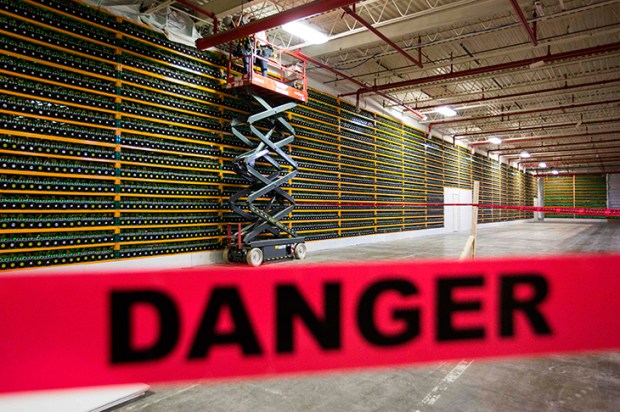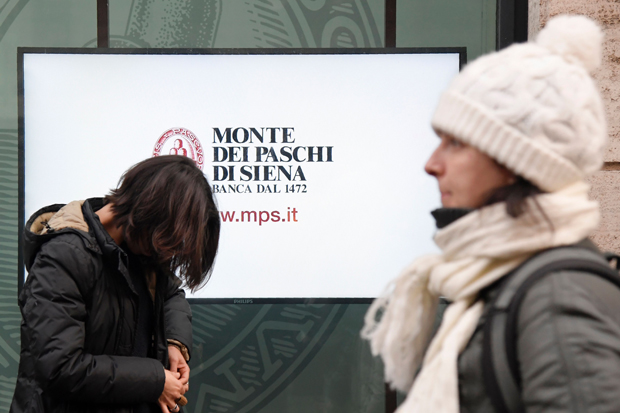The lovely Dordogne village of St Pompon that is my holiday hide-away has only 350 voters, but is a perfect predictor of presidential elections. It voted heavily for Jacques Chirac against Jean-Marie Le Pen in 2002, marginally for Nicolas Sarkozy against Ségolène Royale in 2007, and 59-41 for François Hollande against Sarkozy in 2012. So I’d love to tell you who’s going to win this time on the strength of the chatter at the Good Friday market. But the only national event the locals seemed interested in was a mountain bike championship just up the road. In gentle spring sunshine, the presidential contest seemed so far away that no one had yet bothered to paste the candidates’ posters on to the official boards outside the Mairie — and the only election material I could find was a flyer in the phone box for a Jean-Luc Mélenchon rally.
But that in itself was a useful indicator. The rally, in Toulouse on Easter Sunday, attracted more than 40,000 ardent supporters. ‘JLM’ is the veteran hard-left rabble–rouser — the French Hugo Chavez, Le Figaro called him, the French Fidel Castro according to others — who has emerged as the dark horse in this Sunday’s first-round vote. Having narrowly overtaken the scandal–dogged conservative François Fillon to poll third behind Emmanuel Macron (‘the French Tony Blair’) and far-right Marine Le Pen, some pundits think he could even come second. The head of the French employers’ federation, Pierre Gattaz, has said that a second-round run-off on 7 May between Mélenchon and Le Pen would be ‘a choice between economic disaster and economic chaos’, but polling is so close, and with so many voters still undecided, that it can’t be ruled out as a possibility.
And what then? JLM’s manifesto makes Labour’s John McDonnell look like the limpest Lib Dem. It talks of creating 3.5 million jobs through state spending on grands projets combined with a shorter working week, earlier retirement and protectionist measures against imports. As for entrepreneurship, he would ban redundancies that enhance corporate performance, give workers’ committees a vote de défiance against management on strategic decisions, and raise the minimum wage; plus he would tax the bosses till their pips squeak, at 100 per cent on earnings above €400,000.
It’s hard to imagine my pragmatic St Pompon neighbours voting for all that. But they might like his policies for an agriculture paysanne aimed at creating another 300,000 farming jobs. And his rhetoric about smashing ‘les dominations financières’ is tickling the hostility to Anglo-Saxon capitalism that lurks deep in the French psyche.
Faites vos jeux
Mélenchon, I should emphasise, is still very much the outsider — William Hill had him earlier this week at 15/2, against Macron as evens favourite — but it’s worth thinking what a non-Macron victory would mean for the UK economy; and indeed, since we are Anglo-Saxon capitalists at heart, how money might be made out of French uncertainty between now and 7 May.
I wouldn’t waste money at 3/1 on poor old François Fillon, the supposedly Thatcherite candidate, who I’m assured is no sleazier than your average former French prime minister but has been stitched up rotten by enemies in his own party. On the other hand, it might be worth a 7/1 flutter on the ‘disaster versus chaos’ scenario of a Mélenchon-Le Pen final. Or if you’re convinced that’s not going to happen, you could ask your man at Goldman Sachs to construct a bigger punt for you on French government bonds, whose prices have dipped — widening their yield gap above the German bonds that are the EU benchmark for state borrowing costs — on heightened fears of ‘Frexit’ if either maverick wins power.
As for the euro, it’s likely to strengthen against the pound if the upbeat and relatively business-friendly Macron wins, adding to the UK’s current inflation problem. If Le Pen or JLM wins, the euro will plunge, hurting our exports and exposing us to the backwash of sudden economic crisis across the Channel; but it will dampen inflation, and every Eurostar train to London will be full of French entrepreneurs looking for ways to invest over here. As for me, with Brexit ahead, I think owning a small house on French soil is more than enough of a bet on an unappealing field of runners.
Mortal sin, Swiss-style
Elections at home and abroad knocked business out of the headlines, but one big story was that of the top dozen executives at Credit Suisse who volunteered for a 40 per cent cut in their bonuses in the hope of heading off a shareholder backlash — after the bank reported losses of Sw Fr 2.7 billion last year, paid fines of $5.3 billion to US authorities for mis-selling of mortgage-backed securities, and found itself simultaneously raided by tax inspectors in five countries hunting for evasion and money laundering.
The bonus cut briefly garnered positive headlines for chief executive Tidjane Thiam, the Côte d’Ivoire-born ex–McKinsey consultant who used to run Prudential in London and was appointed two years ago to clean out the Credit Suisse stable. But it transpires Thiam himself will still earn more than $10 million for 2016, down from nearer $12 million before the bonus cut, prompting shareholder activists to ask why a team that has collective responsibility for this historic institution’s current status as a national embarrassment — and the near-halving of its share price since Thiam took charge — should collect any bonuses at all.
Because the talent would all leave, comes the answer whenever that question is asked, but no one ever puts it to the test. ‘This is a mortal sin,’ says Swiss politician Thomas Minder who has led a long campaign against excessive executive pay, and I’m inclined to agree with him. Shareholders have a binding vote on the bonus package at their annual meeting in Zurich on 28 April: I shall cheer them if they slash it.
Got something to add? Join the discussion and comment below.
Get 10 issues for just $10
Subscribe to The Spectator Australia today for the next 10 magazine issues, plus full online access, for just $10.
You might disagree with half of it, but you’ll enjoy reading all of it. Try your first month for free, then just $2 a week for the remainder of your first year.














Comments
Don't miss out
Join the conversation with other Spectator Australia readers. Subscribe to leave a comment.
SUBSCRIBEAlready a subscriber? Log in